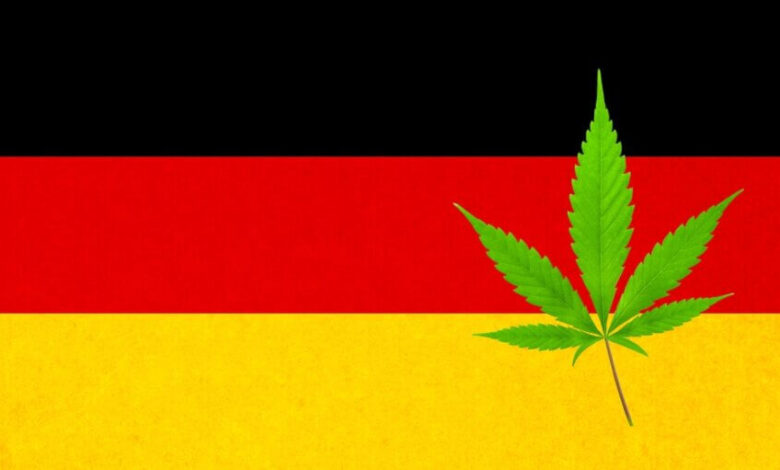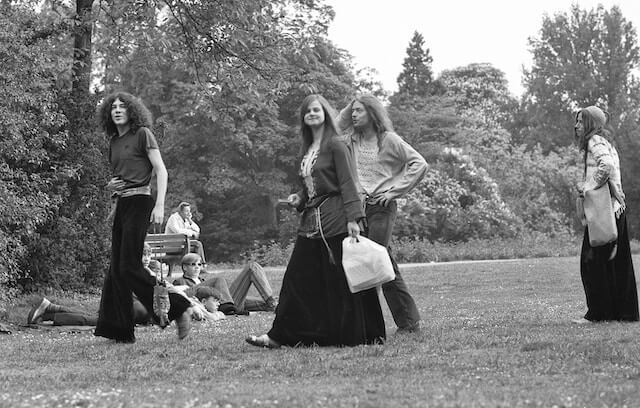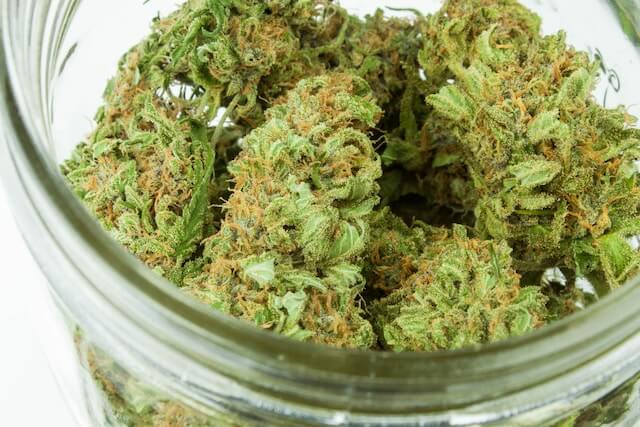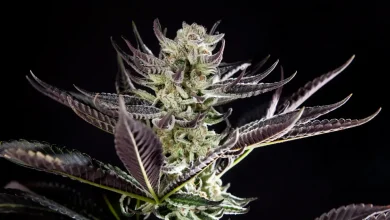Cannabis in Germany- Alchimia Grow Shop

From ancient times to the present day, cannabis has played a fascinating role in human history. In the context of Germany, this plant has undergone a significant evolution in its perception, use, and regulation over the years, especially if we take into account the latest news coming from this country. From being valued in traditional medicine to being the subject of intense legal and medical debates in the modern era, cannabis has woven a unique fabric into the cultural and legal narrative of this territory.
In this article, we will dive into the history and current situation of cannabis in Germany, exploring how this plant has gone from a medicinal resource to a hot topic in conversations about politics and health. From pioneering legislation to contemporary challenges, we will examine the changing landscape of cannabis in Germany and how its trajectory continues to shape attitudes and decisions in this European nation.
Origins and evolution of cannabis in Germany
The origins of cannabis in Germany can be traced back to a combination of historical, cultural, and commercial factors. Although not found natively in the region, cannabis has arrived in Germany throughout history through interactions with other cultures and regions, the first evidence of this being some seeds found in a cave in Eisenberg, in the area of Thuringia (central Germany), and dated to 7,500 years ago. Another important discovery was that of Wilmersdorf (today Berlin), where seeds about 2,500 years old were found.
Below we highlight some key points about the origins of cannabis in Germany:
- Trade Exchanges and International Contacts: Cannabis is not native to Europe, but it is believed to have arrived in the region through trade routes and international contacts. In the past, trade routes and interactions between Europe, Asia, and Africa facilitated the spread of plants and products, including cannabis and, later, its derivatives such as hashish (16th century and onwards).
- Medicinal and Religious Uses: Cannabis has been valued for its medicinal properties and was used in various ancient medicinal traditions around the world. It is likely that the medicinal properties of cannabis were recognized and used in Germany at certain times, especially from the XIII century and onwards, despite the efforts of the Inquisition.
- 19th century and early 20th century: During the 19th century and early 20th century, cannabis was known in Germany primarily for its industrial and medicinal uses. It was used in the manufacture of products such as paper and textiles, and was found in some medicinal preparations.
- Colonial Impact: During the colonial period, European powers, including Germany, had contacts with regions where cannabis was an important plant. This could have influenced the spread of cannabis-related knowledge and resources.
- Hippie Movement and Counterculture: In the 1960s and 1970s, the hippie movement, counterculture, and other underground movements introduced recreational cannabis to Germany, as well as many other parts of the Western world. Marijuana use became popular among young people and was associated with counterculture movements and activism.
- Regulation and Legal Changes: Throughout the 20th century, cannabis in Germany experienced changes in its legal status and regulation. The plant became the subject of regulation due to public health and safety concerns, leading to stricter laws on its possession and distribution.
Today, cannabis remains a relevant topic in Germany, with a focus on medicinal use and discussions on the legalization and regulation of recreational cannabis. The plant has come a long way from its historical origins to its current position in German society and politics.

Cannabis in Germany during the 20th century
The evolution of cannabis in Germany during the 20th century was marked, as in many other countries around the world, by changes in public perception, legal regulation, and medical approaches. Here is a brief summary of the key events that shaped the history of cannabis in Germany during the last century, which with the arrival of prohibition and the War on Drugs represented a severe setback to the evolution and uses of the plant in these territories, of course including our protagonist country:
1920s and 1930s:
- Cannabis was present in the German pharmacopoeia, but its use became more controversial as concerns grew about its possible negative and psychoactive effects.
- In 1929, Germany ratified Geneva’s International Opium Convention of 1925, which regulated the international control of psychoactive substances, including cannabis.
1940s to 1960s:
- During the Nazi era and World War II, state policies and repression greatly limited the spread of cannabis and other recreational drugs in Germany.
- In the 1950s, cannabis began to appear among groups of intellectuals and artists, but its use remained relatively limited.
1960s:
- The hippie movement and counterculture led to a greater spread of marijuana in Germany, especially among young people.
- In 1969, Germany enacted the Narcotic Drugs Act, which established stricter regulations on cannabis and other psychoactive substances.

1970s:
- Cannabis use remained popular among young people, leading to concerns about public health and the potential for addiction.
- In 1972, the “Bund Deutscher Hanfverband” (German Hemp Association) was founded in Berlin, one of the first organizations to fight for the legalization of cannabis.
1980s:
- The 1980s were marked by public debates over the legalization of marijuana, although most efforts focused on discouraging its consumption and trafficking.
- Police repression increased and penalties for cannabis possession and trafficking were intensified.
1990s:
- In this decade, Germany’s stance towards cannabis remained largely against it, with continued efforts to prevent its use and trafficking. However, in 1996 the cultivation of hemp was approved.
- Over the years, the debate over decriminalization or legalization of cannabis began to gain more attention.
21st century, change in German policies regarding cannabis
Throughout the 21st century, there has been a gradual change in public opinion about marijuana in Germany, which has translated into a gradual openness on the part of the government regarding its use and cultivation. A part of society has been in favor of legalization for recreational use, citing economic and public health benefits, while others have expressed concerns about the possible associated risks. In 2017, Germany legalized the use of cannabis for medicinal purposes at the federal level, allowing patients with certain medical conditions to access cannabis products under a medical prescription.

Another important step was taken in 2019 by allowing the cultivation of medicinal cannabis under strict regulations. This allowed companies to grow cannabis for medicinal purposes and supply the growing domestic market, as well as increase investment in research into the medicinal effects of cannabis and its use for the treatment of various medical conditions. Additionally, there have been efforts to establish clearer and more detailed regulations for the medicinal use and cultivation of cannabis indoors and outdoors. After legalization, patients with diseases such as chronic pain, multiple sclerosis, Tourette syndrome, and other serious conditions were able to obtain medical cannabis in pharmacies with a prescription. However, health insurance availability and coverage may vary.
We see how laws and attitudes towards cannabis have gradually changed, with some German states adopting more lax enforcement policies, focusing on more serious crimes. Several cities have taken steps to decriminalize the consumption of small amounts of cannabis, while the discussion on the legalization of recreational cannabis has also gained ground in recent years, ultimately achieving a favorable outcome.
Indeed, in a meeting in August 2023, the government decided to give the green light to a law that regulates the possession and purchase of recreational cannabis, thus becoming the second country to legalize recreational marijuana in Europe after Malta, which did so in 2021. As soon as the new law is approved, German citizens will be able to have 25g of cannabis and grow up to three plants per person, while consumer clubs will be able to have up to 500 members. The new law should be approved on September 4, when parliamentarians return to work after the summer holidays.
Hemp Parade and Global Marijuana March
That some German citizens have been fighting for decades for the legalization and regulation of both medicinal and recreational cannabis – with the results that we have already seen – is attested to by important events organized in this territory, such as the Hemp Parade or the Global Marijuana March, two marked events. in green on the calendars of many European activists and which every year bring together a large number of defenders of the plant. The Hemp Parade (Hanfparade), a massive demonstration full of people, colors, and a lot of smoke, has been organized in Berlin every August since 1997, while the Global Marijuana March was held for the first time in 2011, in coordination with the German Association of Hemp (Hanfverband).
Without a doubt, these are two events that perfectly exemplify the will of thousands of Germans who only want to see marijuana free in their country, evidencing the many advantages that this could bring for society in general, and that have helped, year after year, to this paradigm shift with respect to the plant that German society is experiencing. An example to follow for many other countries, without a doubt!
The articles published by Alchimiaweb, S.L. are reserved for adult clients only. We would like to remind our customers that cannabis seeds are not listed in the European Community catalogue. They are products intended for genetic conservation and collecting, in no case for cultivation. In some countries it is strictly forbidden to germinate cannabis seeds, other than those authorised by the European Union. We recommend our customers not to infringe the law in any way, we are not responsible for their use.




